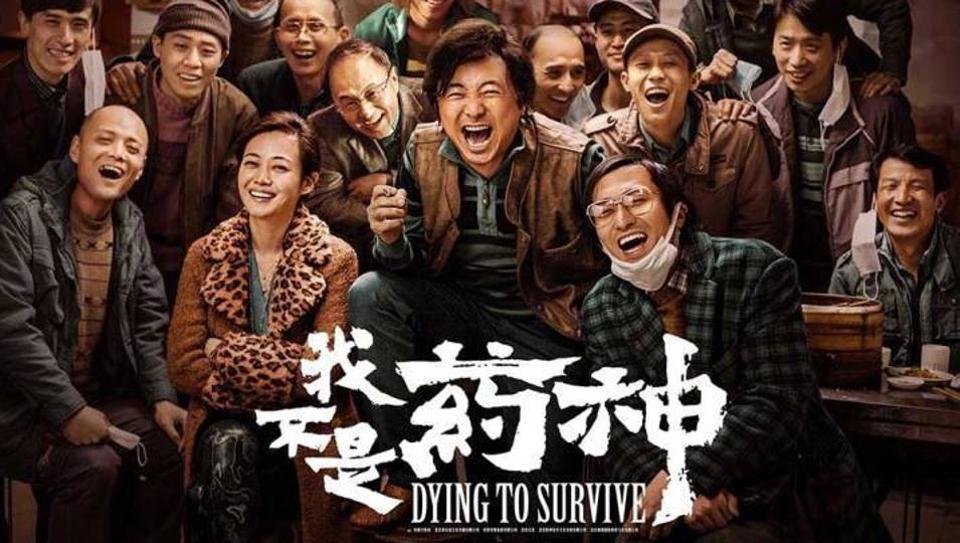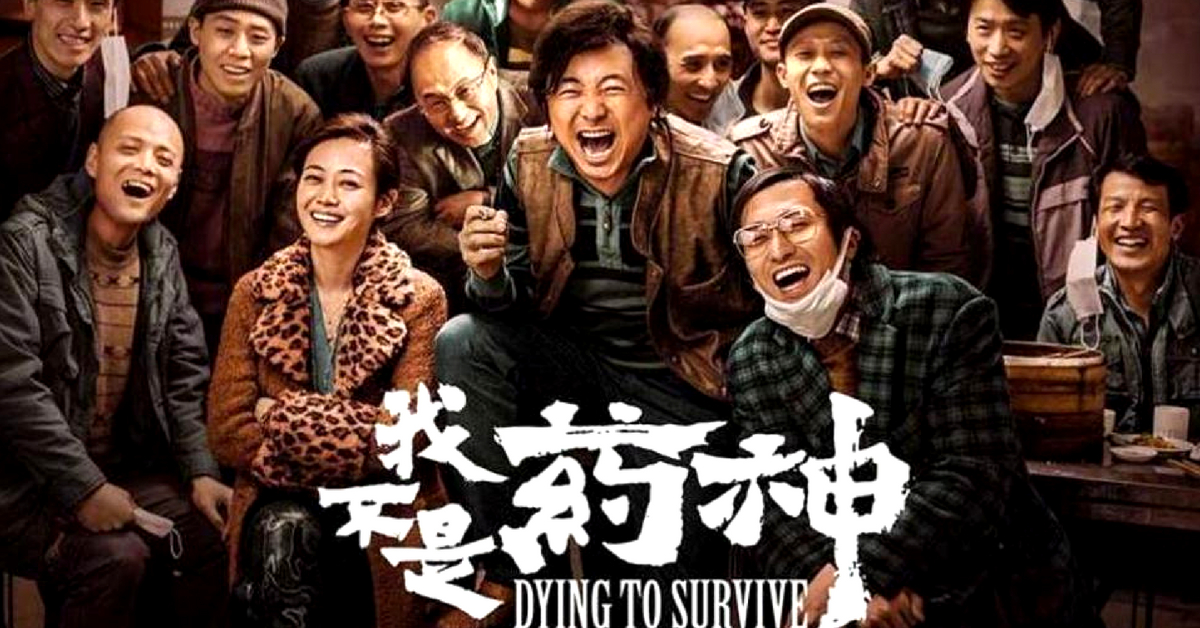Have you watched the famous Oscar-winning movie, Dallas Buyers Club? It is the story of Ron Woodroof, an AIDS patient diagnosed in the mid-1980s. Unable to buy exorbitantly-priced US government FDA-approved drugs, Ron Woodroof (played by Matthew McConaughey) smuggled cheaper, yet effective, generic drugs from outside the country to assist other AIDS patients.
Last month, popular Chinese actor and director, Xu Zheng, released Dying to Survive—a movie which follows a similar plot. It chronicles the life of businessman Lu Yong, who was arrested for selling cheaper, ‘illegal,’ yet highly popular, Indian cancer drugs in China to patients who couldn’t afford the prohibitively priced Western-approved drugs. The movie is a smash hit, amassing nearly $200 million on the opening weekend.
Indian generic drugs are not yet approved for sale in China, although that may change soon.
The story of Lu Yong is remarkable. In 2002, he was diagnosed with leukaemia and was prescribed Novartis-manufactured Gleevec, which costs approximately 25,000 Yuan (Rs 2.5 lakh) a bottle. After nearly spending nearly Rs 70 lakh of his own money, Lu switched to Veenat, an Indian cancer drug which is not only as effective as Gleevec but is also sold at one-tenth of the price.

Besides treating himself, Lu also made it his mission to assist hundreds of other cancer patients by selling them Veenat. In 2014, the Chinese authorities arrested him.
According to China Daily, however, the Chinese Supreme Court took a lenient view of Lu’s case considering his health and the fact that he had helped hundreds of other patients.
The court went onto pronounce that selling a small amount of unlicensed foreign drugs that don’t hurt patients isn’t a crime. Many scenes of the movie were shot in Mumbai, from where the drugs are smuggled in ships to Shanghai.
Pharma major Novartis is subject to some heavy criticism in the film, showing how their prohibitively-priced drugs have a debilitating effect on the Chinese healthcare system.
In fact, there is one scene where an executive from the Pharma major is seen sitting in meetings of the Shanghai police looking into how to crackdown on the sale of Veenat in China. In another scene, Xu reprimands a police officer for misbehaving with a protestor/cancer patient outside Novartis’ office. “What is his crime? He was only struggling to survive,” he says.
Earlier in May, the Chinese government announced that it had removed import duties on 28 medicines, including critical cancer and cancer alkaloid-based drugs, from India.
Also Read: This Move by China Spells Good News For Medicine Manufacturers of India!
“We believe the expansion of imports and slashing of tariffs on anti-cancer medicines will usher in great opportunities for India and other countries in the region,” said Hua Chunying, the Chinese foreign ministry spokesperson on Monday.
(Edited by Gayatri Mishra)
Like this story? Or have something to share? Write to us: contact@thebetterindia.com, or connect with us on Facebook and Twitter.
NEW: Click here to get positive news on WhatsApp!
If you found our stories insightful, informative, or even just enjoyable, we invite you to consider making a voluntary payment to support the work we do at The Better India. Your contribution helps us continue producing quality content that educates, inspires, and drives positive change.
Choose one of the payment options below for your contribution-
By paying for the stories you value, you directly contribute to sustaining our efforts focused on making a difference in the world. Together, let's ensure that impactful stories continue to be told and shared, enriching lives and communities alike.
Thank you for your support. Here are some frequently asked questions you might find helpful to know why you are contributing?

